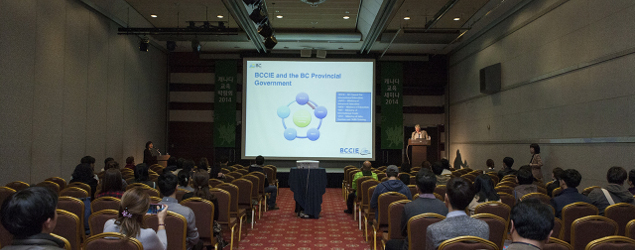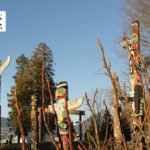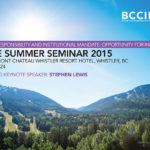Interview with Randall Martin from BC Canada
1. I looked up your career and it was so impressive that you have been into international student programming more than ten years. What inspired you to be a respectful educator for international students?
Thank you very much.
I have 25 years’ experience in post-secondary education, development education and international education, including development work as well as more than 15 years supporting the internationalization efforts of Simon Fraser University (SFU) in Vancouver. I began my professional career teaching in the college sector, then moved to a university development project in Eastern and Central Indonesia, after which I returned to Canada mandated to design, build and implement international and international student programming for SFU. I assumed leadership of BC Council for International Education in 2006.
Travel and education have been important to me for as long as I can remember, so this career path was a natural fit. In _____ I earned a doctorate in international education and have been honoured to be a presenter, speaker and mentor in this exciting field ever since.
2. For Koreans, ‘post-secondary education’ is an unfamiliar word. Could you tell us about Canada education system briefly?
The Canadian education system is divided into three levels.
Elementary: The first 6–8 years of compulsory education. Elementary school children range from ages 5–13, but this varies by province/jurisdiction.
Secondary: The last 5 years of compulsory education. Secondary school students range in age from 12–18.
Post-secondary: Optional schooling beyond the secondary or high school level. This can include public or private college, universities, language schools or non-degree granting institutions. The average post-secondary program lasts 2-4 years.
3. In the BCCIE website, I found ‘EQA’. BC is the only province in Canada with a provincial seal of quality for post-secondary education. What part of education in BC differentiated from other provinces? What kind of benefits can international students get in BC?
BC, Canada is one of the best places to study. Our education system is globally recognized for progressive, flexible learning. Our schools and universities are among the top-ranked in Canada and around the globe. BC cities are livable, safe and excellent for outdoor adventures.
You are correct that BC is the only province in Canada with a provincial seal of quality for post-secondary education. The EQA designation ensures institutions meet specific quality standards set out by the Ministry of Advanced Education. It is voluntary for schools to register for the EQA status, but doing so improves branding and reputation. Students trust EQA schools and are guaranteed consumer protection. For example, they will receive a tuition refund should their school or program close.
4. Many Korean students are highly interested in studying abroad! Please give some advices to students who want to study in BC! They want to know what they should prepare for the future.
There are important details a student should consider when decided to study abroad. Knowing when to apply, how to apply and where to apply are of course key considerations. Once accepted into a BC school, students will need to apply for a study permit through the Department of Citizenship and Immigration Canada.
BCCIE has created a website, StudyinBC.com, which provides resources and practical information to help students explore study options available. You can browse a listing of all schools across the province, connect with students and teachers and learn why BC has one of the world’s best transfer systems.
We hope this website will not only assist students but inspire them with stories, photos and videos of past international students just like themselves who have made the trip out to BC.
For full interview, please visit: http://insidecanada.kr/220186862861



